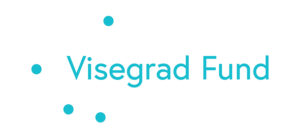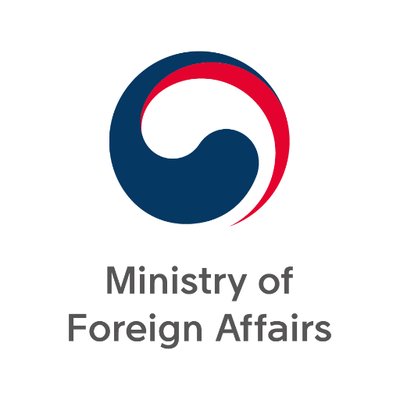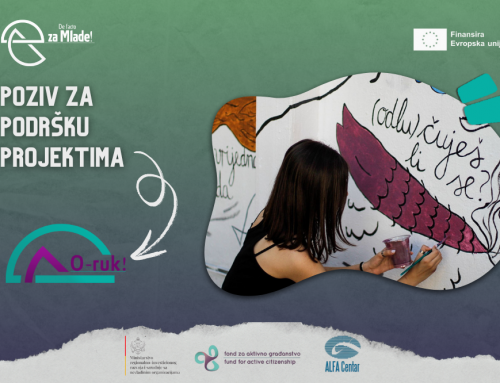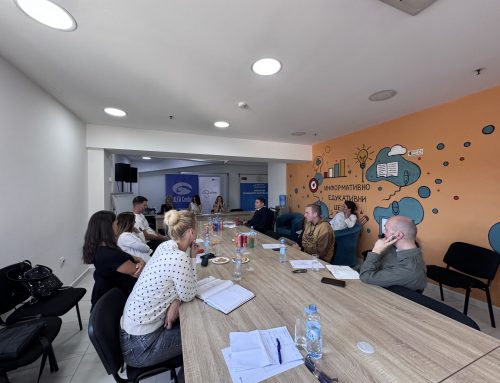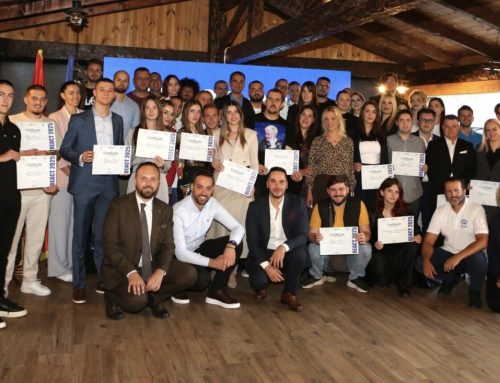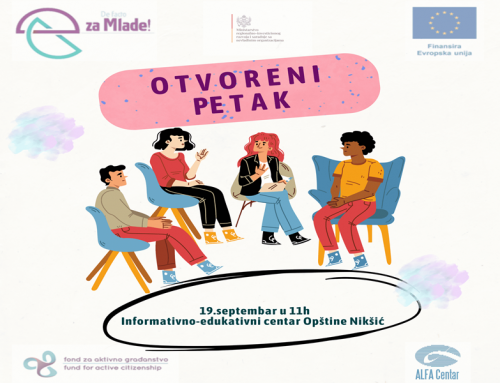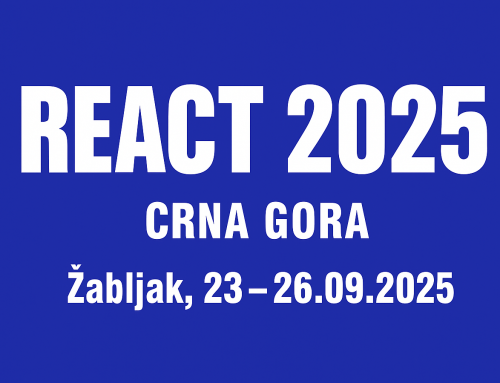From September 3 until September 10, 2024, ALPHA Centar with partners from the team of Strategic Analysis, in cooperation and seven partners from the Balkans and Visegrad countries, co-organized an engaging Summer School focused on media literacy, which took place in the stunning town of Žabljak, Montenegro, with 30 young leaders from across the Western Balkans.
The program began with icebreaking activities and group building, which were crucial for establishing effective teamwork and communication under the guidance of Luis Bekteshi from the Perspektiva, Albania.
Participants learned how to navigate the complex digital landscape by developing essential skills in media literacy. Led by experts, the sessions covered the following topics:
- Milos Perovic, Alfa Centar, Montenegro – Official welcome and introduction to the summer school’s goals. He emphasized the importance of media literacy and provided an overview of the program.
- Jan Cingel, Strategic Analysis, Slovakia – Hybrid threats in the Western Balkans. He discussed how disinformation and manipulation can impact political and social environments.
- Samet Shabani, Horizon Civitas, North Macedonia – Training on “What is the truth?” Participants learned to critically analyze information and identify fake news.
- Milos Jevtic, Professional Association of the Security Sector, Serbia, – The use of AI in creating fake news. He presented technologies and methodologies used to generate false information.
- Ivana Sreckovic, European Bank for Reconstruction and Development, Montenegro – Critical analysis of media messages. She focused on evaluating media quality and reliability and methods to recognize biased narratives.
- Alexandra Tothova, Strategic Analysis, Slovakia – Best practices for digital security. She discussed data protection and safe internet use. Participants also experienced virtual reality incorporated into teaching about the digital security, offering a new perspective on digital technologies.
- Richard Straka, Infosecurity, Slovakia – presented OSINT tools for beginners. He demonstrated how these tools can be used for gathering and analyzing public information.
- Kamil Baluk, Instytut Reportazu, Poland – introduced the genre of reportage and writing techniques. He discussed various approaches and techniques used by journalists in reporting.
- Jan Zabka, Okraj.cz, Czechia – spoke about fact-checking and its importance for journalism. Participants learned techniques for verifying the accuracy of information.
- Domen Savic, Citizen D, Slovenia – made an introduction to media literacy topic and emphasisez its importance on the example of extreme right-wing hate speech. He examined the impact of advertising contracts and discussed practical aspects of misinformation.
- Petra Boskova, Strategic Analysis, Slovakia – spoke about polarization and strategic communication. She discussed how communication can contribute to societal polarization and potential solutions.
The program was enriched with various workshops and critical discussions, helping participants improve their skills in fact-checking, dissecting biased narratives, and analyzing media content in a hyper-connected world.
The Summer School was not just about acquiring knowledge but also about building a community of young leaders equipped to confront the spread of disinformation and inspire change in their home countries. Participants eagerly discussed the next steps for their projects, ensuring that the skills they gained will be applied long after the program ends.
The project is generously funded by the International Visegrad Fund and MFA Republic of Korea.
